HP launches WebOS Tablet, new Pre, and new mini-phone
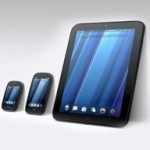
Since Palm Inc. was acquired by Hewlett-Packard ten months ago, the tech world has been expecting a WebOS-powered slate, while simultaneously wondering what would happen to Palm's critically acclaimed line of WebOS smartphones.
Wednesday, HP answered all questions, by unveiling the TouchPad tablet, the Pre 3, and a new WebOS phone called Veer.
my6sense launches Chrome extension to filter crappy tweets
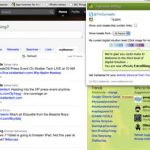
Israel-based software maker my6sense has branched out from its mobile app roots and launched a Chrome browser extension for Twitter on Wednesday. Like the my6sense app for iOS and Android, the Chrome browser extension strives to reduce the spam and irrelevant content for Twitter users who find themselves following just a bit too many people.
How many people can you follow on Twitter and not lose information? It's been a subject of discussion for years, which prompted Twitter to launch list-based filtering back in 2009. Indeed, there are many third-party applications to help users organize and filter the potential Twitter overload.
Daily Deal sites: passing fad or future of shopping?

Wednesday, Mobile loyalty card app CardStar announced it has become the first app of its ilk to partner with Groupon, the extremely hot daily deal service, and users of its iPhone and Android apps in more than 160 cities will have location-specific access to Groupon deals.
CardStar lets users scan or manually enter all those shopping rewards cards into a single app, and then their smartphone's screen can be scanned at the cash register when they check out. Generally speaking, the app focuses on cards that users already have or ones that they get separately from CardStar. But with this new version of the software, users can now sign up for new cards directly through the app, and with the Groupon deal, membership isn't even required to view the daily deals.
Toward a New American Ingenuity: CEA's Gary Shapiro

As the world slowly recovers from years of economic crises, the United States remains in peril with both a massive deficit and the lingering unemployment problem. This year, Consumer Electronics Association President Gary Shapiro has emerged as one of the few industry organization leaders who has put the health of the U.S. economy as his primary focus, and he's done so with great conviction.
In his CES 2011 keynote, Shapiro took the stage to sharply criticize Washington's trade policies, saying they discourage innovation and encourage senseless overspending.
Alcatel-Lucent introduces componentized, software-defined network hardware

The shrinking cell site is definitely a theme this week, as mobile infrastructure companies make their big announcements before the Mobile World Congress in Barcelona. International telecommunications company Alcatel-Lucent on Monday, for example, debuted LightRadio, a software-defined mobile radio and distributed base station architecture with virtualized wireless controllers and gateways.
At an event in London yesterday, Alcatel-Lucent unveiled the lightRadio Cube, a tiny base station which includes a baseband radio paired with a Freescale system-on-a-chip, with signal amplifiers and passive cooling mechanisms in a single enclosure a little bigger than a Rubik's cube. This item is the cornerstone of the lightRadio network.
To shrink cell sites, Ericsson unveils hybrid antenna/radio unit

Wireless telecommunications leader Ericsson today announced a new cellular radio solution called AIR (antenna integrated radio) which combines the radio unit with the antenna unit for simpler installation and integration into wireless networks, with the added bonus of decreased power consumption.
Generally speaking, the smaller a company can make their cell sites, the better. With smaller parts, more parts can be added, and obtaining permits and zoning clearance becomes just a little easier. This is an issue Ericsson has been confronting head on with its cell site equipment for the past few years.
Kindle gets real page numbers; better note, highlight & review sharing

Amazon on Monday pre-released a software update for Kindle e-readers running the 3.0 software which updates the interface for magazines and newspapers, adds a quick review section at the end of each book, and adds page numbers that match Kindle books with their print counterparts.
This update is very minor, and the only new feature that takes effect immediately in all content is the "before you go" review section. Here, when you reach the end of a book, you're presented with the option to review your book, or send out a tweet announcing that you just completed the book.
Kyocera outdoes Samsung with a real dual-screen Android smartphone

Kyocera Communications and Sprint on Monday unveiled a new dual-screen Android smartphone called the Echo, which uses two discrete touchscreens, unlike the other "dual screen" Android phone, Samsung's Galaxy S Continuum which is just a single touch panel broken into three independent sections.
When closed, the Echo looks like a regular touchphone, but when opened, its two 3.5" touchscreens can be used to run two full screen applications pseudo-simultaneously, one on each screen. Sprint has given this the name "Simultasking," since it's a task that has heretofore not been done on Android phones. Echo can also be used in "tablet mode" and have a single application blown up to 4.7" to take up the combined screen real estate, or apps can be optimized to use each screen individually. In "optimized mode," the Echo looks quite a bit like a Nintendo DS, dividing an app's functionality into two useful parts.
31% of EU Internet users were infected by worm or Trojan in 2010

Eurostat, the European Union's office of statistics, Monday said that 31% of all Internet users in the 27 EU member nations had contracted a computer virus that resulted in "loss of information or time" in the second quarter of 2010.
Eurostat found that 3% of all users suffered some kind of financial loss related to phishing/pharming attacks or fraudulent credit card use, and 4% of all users reported an abuse related to personal information and privacy.
Google makes it easier to build sites for Google TV

Friday, the Google TV team published a couple of new design templates, as well as a still-in-beta Web UI library that Web designers can use to optimize their sites for Google TV.
"While existing websites can be displayed in Google TV, the user experience isn't always ideal within the context of a living room," Steve Hines and Daniels Lee of Google TV Developer Relations Team wrote in the Google TV blog today.
New Android market shows the future is in device-agnostic app stores

Google on Thursday finally launched a renewed web-based Android Market that integrates with a user's Google account and lets him shop for applications and send them to the various Android-powered devices linked to the account. This new shop marks the industry-wide trend toward comprehensive device-agnostic software shopping solutions.
Amazon's Kindle store was the first major shopping outlet to take such a step. Users can shop for Kindle-formatted e-books on Amazon.com, and push their purchases to their Kindle device, regardless of whether it's a dedicated e-paper reader or a software application.
Motorola Atrix 4G notebook: a $500 conundrum
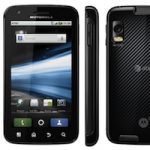
Thursday, AT&T and Motorola announced pricing and availability of the Motorola Atrix 4G convertible smartphone. The public first recoiled at the pricetag --$199 for the phone and $500 for its notebook dock-- but the Atrix is an extremely enticing new type of gadget that could be a good solution for specific users.
The main idea behind the Atrix 4G is that the smartphone acts as a "brain" that can power a notebook computer, a set top box, or stand alone as a phone. It features a dual gigaherz core Nvidia Tegra 2 processor, 1 GB of RAM, up to 32 GB of storage, and features the Android 2.2 operating system with special dedicated interfaces for the notebook and multimedia set top box.
Diskeeper launches Emergency Undelete as standalone application
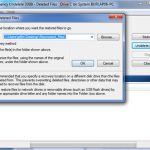
California software company Diskeeper today announced that its Emergency Undelete is now a standalone product, independent from the Undelete 2009 software suite where it originated.
Diskeeper's Undelete 2009 is available in two editions, Professional for $59.95, and Server for $499.95. But for users who don't need full-scale disk recovery software and just want to protect themselves from accidentally deleting important files, Diskeeper's Emergency Undelete is available for $19.95 today.
Leaks suggest MeeGo device from Nokia and Intel coming soon
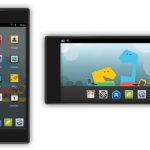
Nokia, a company that last made news for cancelling its X7 smartphone's U.S. launch, has an opportunity to make some positive headlines at GSMA's Mobile World Congress in two weeks. According to a report in The Nokia Blog, an event at MWC called Intel AppUp Application Lab will showcase the first hardware running the MeeGo mobile operating system.
Though the registration form for the event does not expressly mention that MeeGo will be shown running on dedicated hardware, but the MeeGo team had a workable version of MeeGo for tablets at the same time as it released the very first version of MeeGo for handsets, and hardware manufacturers Asus and Acer have pledged support for the OS. Recently-leaked information about a prototype Nokia tablet has led some to believe there may be a device ready to show off for MWC.
A look at Firefox 4 beta 4 for Android

Mozilla on Wednesday released the fourth beta version of Firefox 4 for Android and Maemo mobile operating systems. The update fixes some compatibility and performance issues, and attempts to provide an overall faster browsing experience.
In the Mozilla Blog today, the team wrote "Our recent tests on JavaScript benchmarks show Firefox 4 Beta is faster than the stock Android browser; roughly three times faster on Kraken, about twice as fast on SunSpider and slightly faster on V8. Everything from start-up time and page load time to responsiveness and panning and zooming are snappy in this release. Other advancements in this release include increasing stability, reducing installation memory usage, improving readability with zooming, and fixing some keyboard issues."
Tim's Bio
Tim Conneally was born into dumpster tech. His father was an ARPANET research pioneer and equipped his kids with discarded tech gear, second-hand musical instruments, and government issue foreign language instruction tapes. After years of building Frankenstein computers from rubbish and playing raucous music in clubs across the country (and briefly on MTV) Tim grew into an adult with deep, twisted roots and an eye on the future. He most passionately covers mobile technology, user interfaces and applications, the science and policy of the wireless world, and watching different technologies shrink and converge.
© 1998-2025 BetaNews, Inc. All Rights Reserved. Privacy Policy - Cookie Policy.
